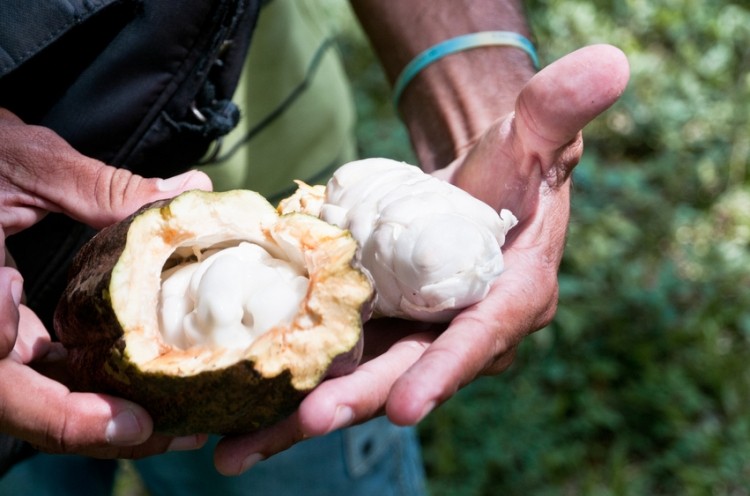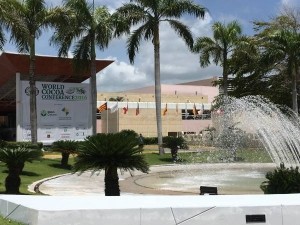Editor's Blog
One for all: Cocoa sector can only be sustainable with strong and unified farmer voice

The majority of cocoa – around 85% according to some estimates – is grown by chronically impoverished smallholder farmers in West Africa producing small quantities and earning less than $1.25 a day.
They are often not reached by fair trade programs or chocolate industry sustainability initiatives because they are not part of a cooperative or an organized and credible group.
The organized cocoa sector
Chocolate industry programs have to date largely been focused on the 15 to 20% of cocoa produced by organized groups or cooperatives and justly so, because how can firms disseminate programs to millions of individual farmers in remote rural areas?
Hazardous child labor up 18%
Around two million children were in hazardous cocoa work in Ghana and Côte d’Ivoire during the 2013/14 cocoa year, up 18% from 2008/09, according to a Tulane University study. Hazardous work can include carrying heavy loads, exposure to agro-chemicals, using sharp tools and working long hours, which can lead children to miss school.
This has, however, allowed poverty, reduced cocoa quality and malpractices among the majority of disorganized farmers to prosper and is at least a contributor to persistently high levels of unlawful child labor.
Early signs suggest child labor can be stamped out with rigorous remediation and monitoring systems such as those trialed by Nestlé and the International Cocoa Initiative – but that is only possible when a cooperative or organized group exists.
Organized groups additionally benefit from farmer training and find it easier to market their crop and obtain access to credit to improve their farms.
But individual disorganized farmers do not have the same benefits and are estimated to account for around half the negative impacts in the cocoa industry, including deforestation and fertilizer misuse, according to the World Wildlife Fund.
One way to organize the majority of cocoa farmers operating individually is via a unified cocoa farming body, as exists for producing and consuming governments with the International Cocoa Organization (ICCO), and for chocolate companies through the World Cocoa Foundation (WCF).
Three for one
But instead of one, three cocoa producer organizations have emerged since the 2nd World Cocoa Conference in 2014 - The International CoCoa Farmers Organization (ICCFO) World Cocoa Producers Organization (WCPO) and the World Cocoa Farmers Organization (WCFO).
The ICCO – whose members are governments - arranged a ‘Cocoa Producers Forum’ on the first day of the 3rd World Cocoa Conference on June 22, 2016, intending to merge these three farmer groups.
The forum was dedicated to cocoa farmers. Other stakeholders in the supply chain – including the press – were not permitted entry.
The ICCO had originally planned tennis and golf tournaments and welcoming drinks for the inaugural day, prompting an open-letter feud between the ICCO and ICCFO, which announced plans for its own farmers’ conference at the same venue.
ICCFO later canceled its event after the ICCO replaced the sports day with its own farmers forum.
Cocoa Producers Forum
Dr Jean-Marc Anga, executive director of the ICCO, said the day after the forum that the event had “sown the seeds for the future success of the cocoa sector”.

“Our producers, we feel, have been relatively marginalized over the years and we feel the time has come to give them a much stronger voice on the global stage,” he said on stage.
According to the ICCFO’s post-event report, the WCPO and the WCFO each urged the farming group’s to converge under their own name at the forum.
“Unfortunately we could not find a common ground to agree,” said the ICCFO’s report.
ICCFO says it has since contacted both organizations to reach a consensus. It says it has found common ground only with the WCFO and a joint declaration will be due in the coming weeks.
Sako Warren, secretary general of the ICCFO, told ConfectioneryNews conflicting values prevented the groups from merging.
“We are created with the simple value of protecting the interest of farm workers in the value chain… It’s not for me to talk about the values of other organizations,” he said.
ConfectioneryNews has tried to reach the WCFO and the WCPO leaders by phone and email, but has received no reply.
Warren said the format or name of a united farmer organization was not important provided it benefits the lives of farmers globally.
But he added: “We don’t think we are in a position for another organization to tell us what to do,” because he said the ICCFO had already established its objectives.
He claims ICCFO was the first organization to be formed, while the others were created a few weeks later, having initially been involved in ICCFO’s formation. We have attempted to verify these claims with the other groups.
Grouping farmers in West Africa
“The cocoa sector has been neglecting the farmers for a long time,” said Warren. ”Sustainability can only be reached when all stakeholders are strong,” which he said the chocolate industry also acknowledged.
He said the ICCFO is trying to group farmers in small communities in Côte d’Ivoire, Ghana and Cameroon.
“This will pave the way for traceability,” said Warren. “There are farmers that like the idea to come under a cooperative, but they have not been approached to be a member. But you have others who do not want to be part of a cooperative. We recruit these farmers.”
“They will also become sustainable farmers, which is good for the industry at large,” said Warren.
Three cocoa farming groups
World Organization of Cocoa Producers
The World Organization of Cocoa Producers (WCPO) was established on March 20, 2015, in Abidjan, Côte d’Ivoire, according to its website. It has members from nine producer countries: Côte d’Ivoire, Ghana, Nigeria, Indonesia, Dominican Republic, Cameroon, Togo, and Congo DRC. The group is led by N'Guessan Toussaint, who is also president of Ivorian agriculture union UIREVI, which is comprised of 25 cooperatives. Toussaint is a member of the ICCO's industry and civil society Consultative Board on the World Cocoa Economy. His union UIREVI is also a member of the World Cocoa Foundation. Toussaint said at the latest World Cocoa Conference that the WCPO is working on access to fertilizers for farmers and is running a women’s empowerment program. WCPO membership criteria and values are available on its website HERE.
World Cocoa Farmers Organization
The World Cocoa Farmers Organization (WCFO) is headquartered in Rome, Italy, and is led by Abraham Adusei. The organization has no website, but Adusei spoke during a session at the latest World Cocoa Conference. Adusei was chosen as Ghana Cocoa Farmer of the Year by the ICCO in 2013.
The International CoCoa Farmers Organization
The International CoCoa Farmers Organization (ICCFO) is a registered NGO headquartered in the Netherlands and was established in 2014. It has 600,000 cocoa farmer members from across producing countries such as Côte d’Ivoire, Ghana, Jamaica, Indonesia, Cameroon and Venezuela. Its vision and membership are available on its website HERE.













